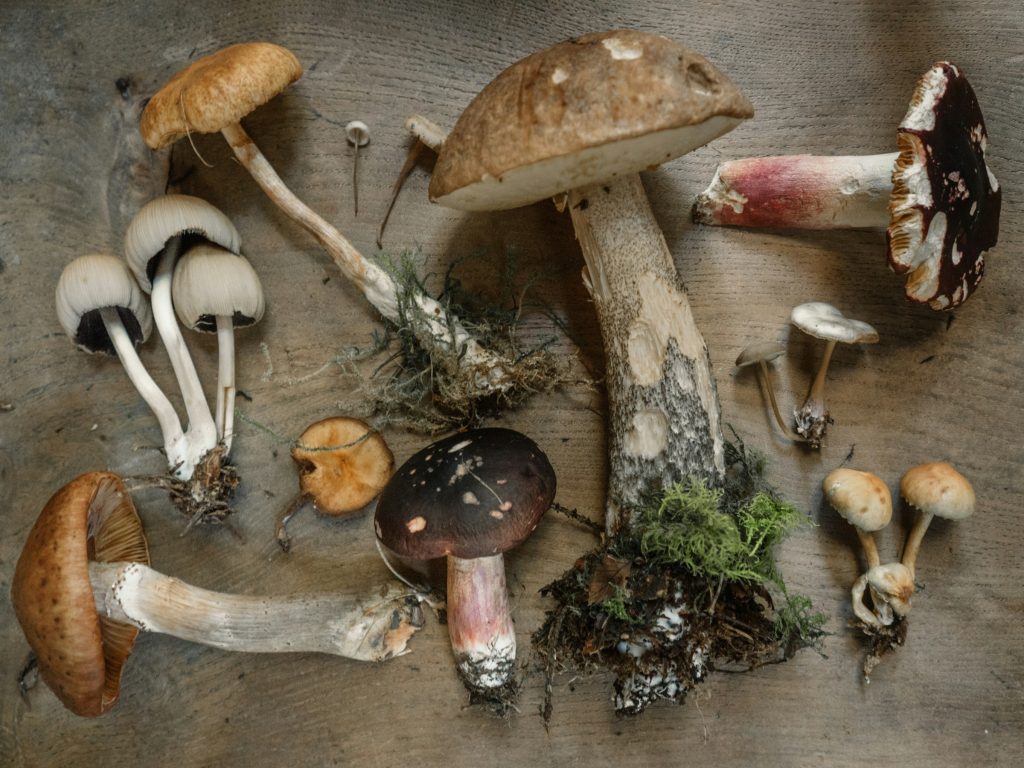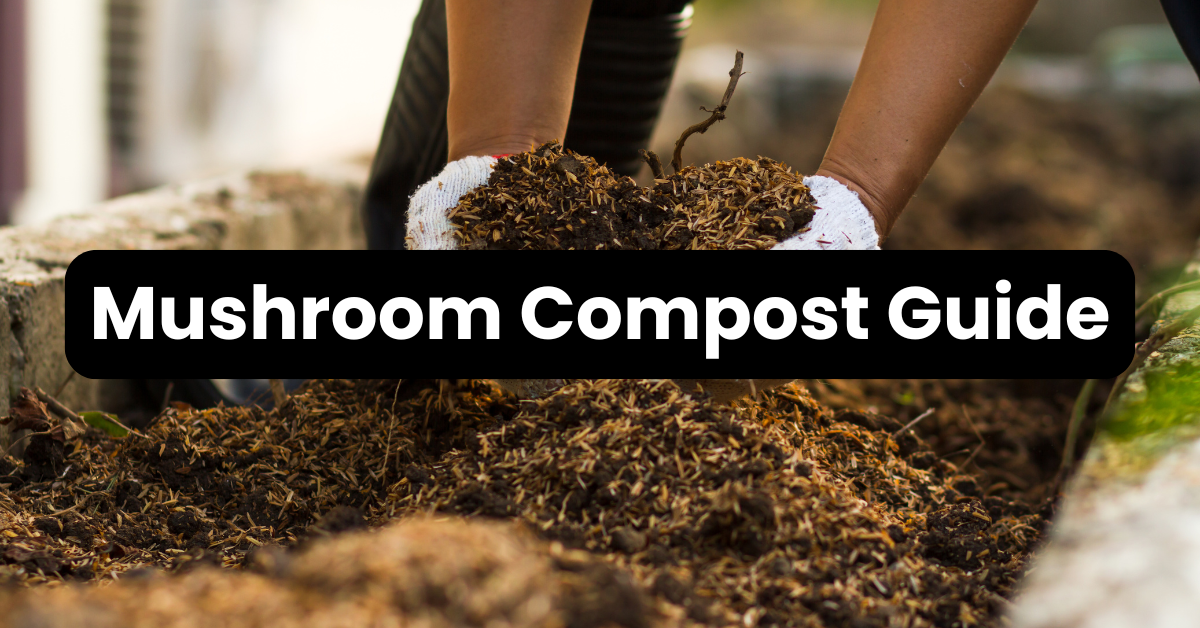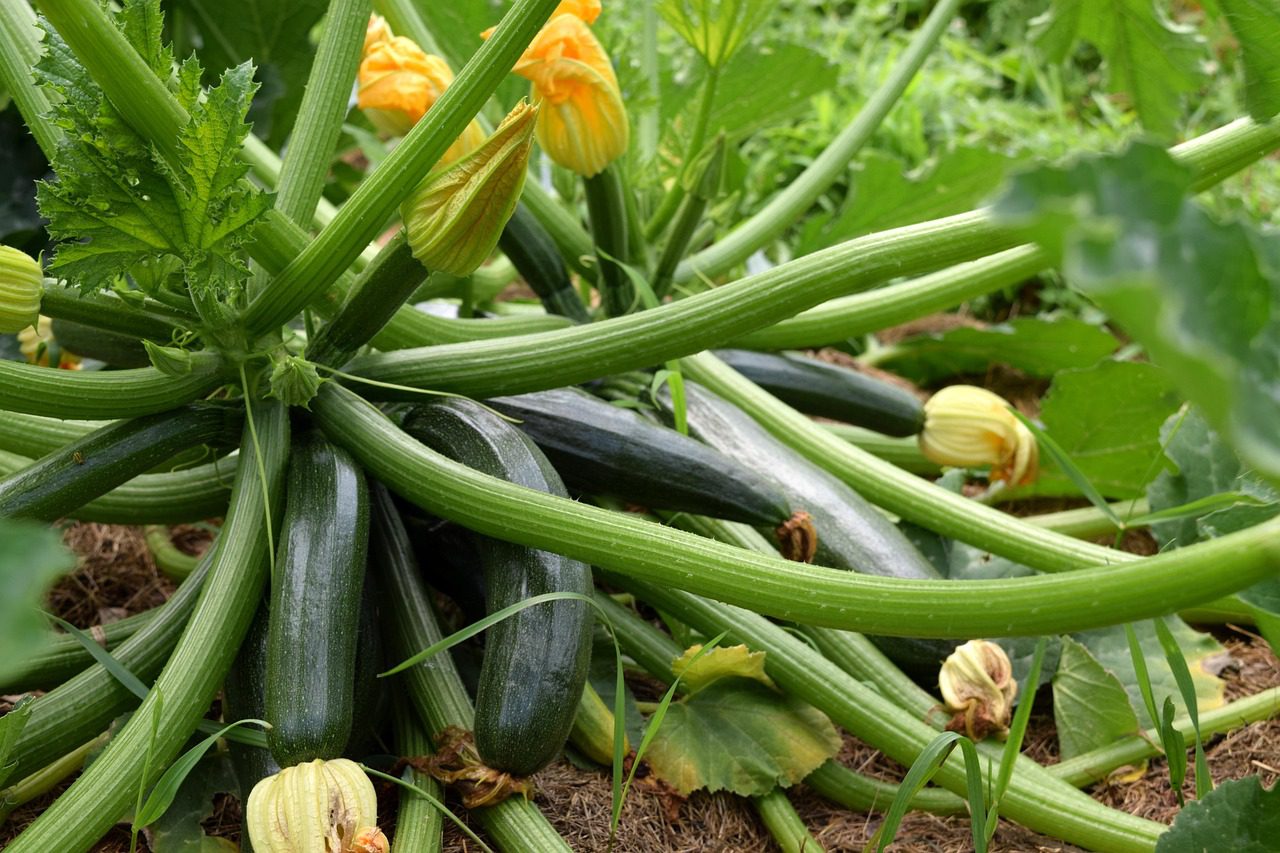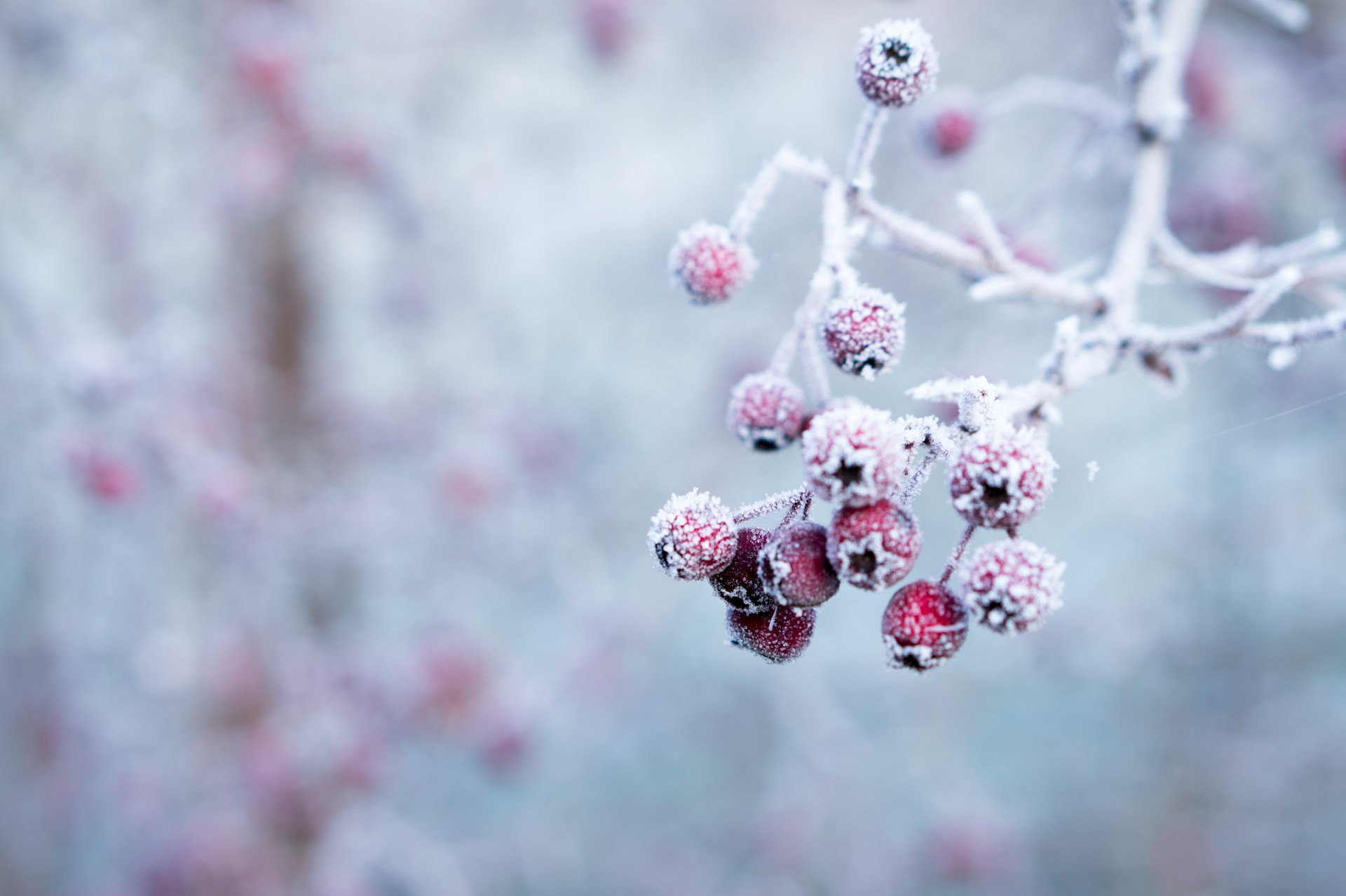To grow a lush garden, you need nutrient-rich soil. Regular compost will do the trick, but it’s not the only option. Mushroom compost can act as both a soil conditioner and a mulch to feed your plants and help retain moisture.
In this mushroom compost guide, we’ll talk about how mushroom compost is made, its benefits, how much to add and more.
What is Mushroom Compost?
Despite its name, mushroom compost isn’t actually made of mushrooms. It’s a by-product of mushroom farming. You could say that it’s more like mushroom soil than anything else.
You can find mushroom compost at your local garden store, nurseries and even online. Espoma sells 0.75 cubic foot bags of mushroom compost on Amazon for less than $20. Black Kow also has their own version of mushroom compost that you can buy online, although their product is pricier.
One thing’s for sure: mushroom compost is easy to find, but is it worth adding to your garden? What is it even made of if it’s not actual mushrooms?
How is Mushroom Compost Made?
Mushrooms are grown in a substrate, and when that substrate is no longer suitable for mushroom growing, it can be used to feed your garden.
But what exactly does this substrate consist of?
- Horse or poultry manure
- Corn cobs or other crop residues
- Hay or straw
- Cocoa shells
Each grower has their own recipe, but these are common components. How it works is simple:
- The substrate is composted for a month at temperatures hot enough to kill pests, weed seeds and pathogens
- The substrate is also steam-pasteurized at high temperatures to kill pathogens and pests that may cause surface disease
Next, the substrate is inoculated with mushroom spawn and then covered with moss and limestone.
Mushrooms are harvested for a few weeks before the substrate can no longer sustain growth. Mushroom growers then bag up the substrate and sell it as Spent Mushroom Compost or Spent Mushroom Substrate.
What is the Nutrient Composition of Mushroom Compost?
Mushroom compost contains a variety of nutrients that plants need to grow and thrive.
According to the American Mushroom Institute, the nutrient composition of mushroom compost is as follows:
- 0.35% magnesium
- 0.67% phosphate
- 1.07% iron
- 1.12% nitrogen
- 1.24% potash
- 2.29% calcium
Mushroom compost also has a 13:1 ratio of carbon to nitrogen, which means the nutrient availability is excellent.

Why Should I Use Mushroom Compost?
There are so many great reasons to add mushroom compost to your garden beds, but like with anything else, there are some potential downsides you should know.
Benefits of Mushroom Compost
- It’s easy to apply to garden beds
- It will fuel plant growth
- You can use it on vegetable and flower beds
- It’s rich in organic matter, which improves water retention in the soil
A Few Cons to Consider
Mushroom compost certainly has its advantages, but there are also a few drawbacks to consider.
- Nutrient composition can vary, depending on the materials and composting process.
- Mushroom compost can be high in soluble salts and other nutrients that may be too harsh for germinating seeds and seedlings.
- The high calcium content may raise the soil pH too high, making it too alkaline.
- Compared to other soil conditioners, mushroom compost can be pricey.
Can You Use Mushroom Compost with Regular Compost?
Mushroom compost contains many vital nutrients your plants need to grow, but it shouldn’t be used as a replacement for regular compost. The best way to take advantage of its benefits is to mix it with your regular compost.
How Much Mushroom Compost Should I Add to My Beds?
Adding the right amount of mushroom compost is crucial. If you go overboard, you risk burning your plants, but if you don’t add enough, you risk your plants not receiving the nutrients they need to grow and thrive.
As a general rule of thumb, you want to add:
- 3-9 cubic yards of mushroom compost per 1,000 square feet
Like with regular compost, you want to apply 1-3 inches of spent mushroom substrate uniformly across the surface and then work it into the existing soil below.
Summary
There are so many ways to feed the plants in your raised garden, and mushroom compost is a popular option among gardeners of all types. Just be mindful not to go overboard (the soluble salt content can damage plants) and use the recommendations in our mushroom compost guide to keep your garden growing strong.





